Description
ABSTRACT
The Practices Of Digital Lending Platforms Vis A Vis Data Protection Laws In Nigeria
Oladamola M. Oyabambi*
The advancement of technology has had its turn in the finance sector, especially with the development of digital lending platforms. This development professed to be a sigh of relief towards preempting financial inclusion and hope for financing small-medium scale businesses. Be that as it may, the reverse has been the case. The practices of some Nigerian digital lending platforms have been like a terror clothed in suits. The ideology behind the development has been hindered through unprofessional operations vis-a-vis exorbitant interest rates, ill-modest modes of debt recovery etc. The progression, seen by many as a symbol of hope, has become an object of disdain. Relevant agencies have tried to control these arbitrary practices to prevent further personal data breaches. A plausible attempt was made by the Federal Competition and Consumer Protection Commission (FCCPC) through its guidelines on digital lending in curtailing the strength of operations of the digital lending platforms. However, controversies have erupted as to the possibility of this guidelines overlapping with the supervisory duties of the Central Bank of Nigeria. This article examines the legitimacy of some digital lending platforms’ practices, using victims’ experiences and relating same torelevant data protection laws.It evaluates the possibility of an overlap of duty by examining the provisions of the Bank and other Financial Institutions Act (BOFIA) and the Guidelines and concludes with feasible recommendations.
Keywords: Digital lending Platforms, Privacy, Regulatory clash, Debt Recovery, FinTech.
INTRODUCTION
The practice of borrowing, loan taking, and money lending has been a continuous means of financial sustainability for both individuals and businesses around the globe.2 Moneylenders include every person whose business is that of money lending or those who carryon or advertises themselvesor holdthemselvesout in anyway as carrying on that business, whether or not he also possesses or owns the property or money derived from sources other than the lending of money and whether or not he carries on the business as a partial principal or as an agent.3 Borrowing has existed since time immemorial. Business owners and individuals borrow for several reasons and repay later. Notwithstanding the different terminologies that have evolved in modern times to describe borrowing, the terms still refer to the contractual interactions of a party known as a creditor with
*LL.B (University of Ilorin), B.L, ACIS, ACIArb, Associate @ Folashade Alli & Associates.
- EE Eja, ‘Money Lending and Regulation of Consumer Credit in Nigeria’: accessed 14 July 2022.
- Section 2 of the Money Lenders Law of Lagos State Cap. M7, 2015. See also Eboni Finance and Securities Ltd. v Wole-Ojo Technical Services Ltd. & 2 Ors[1996] 7 NWLR (Pt. 461) 1 464.

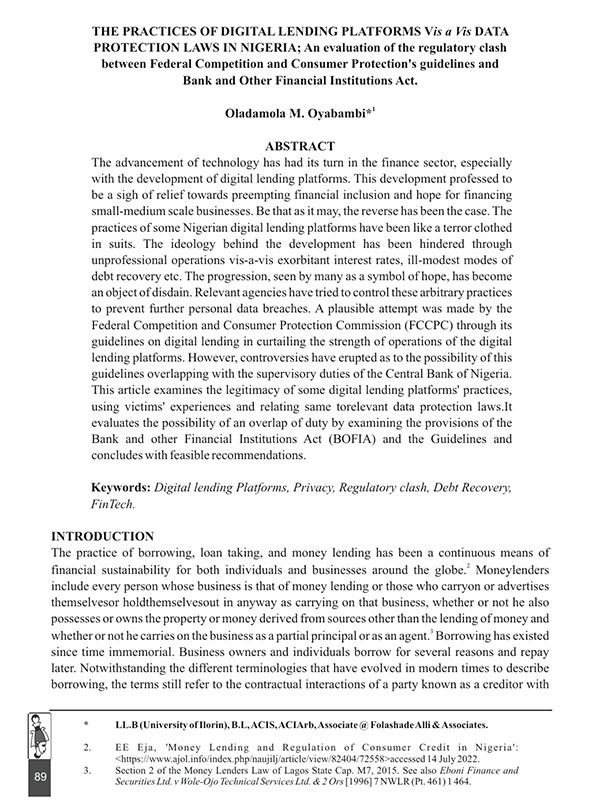
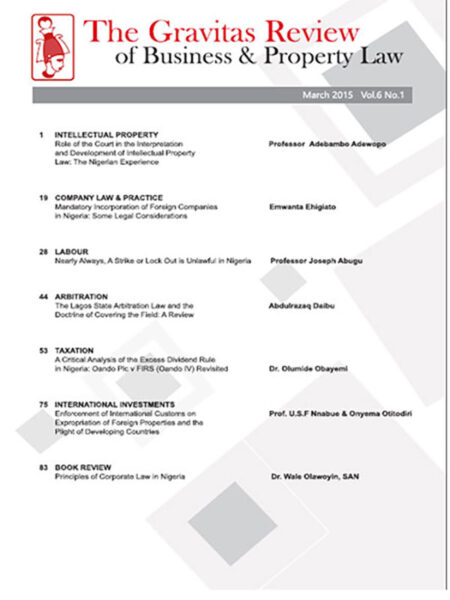
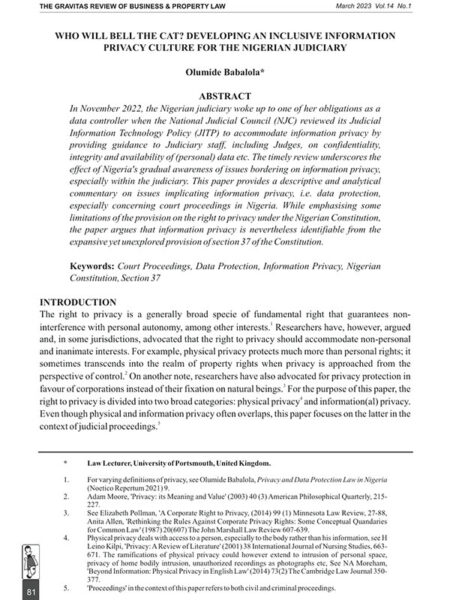
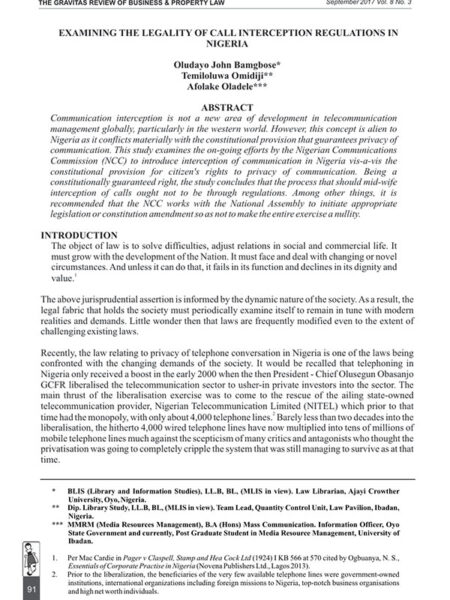
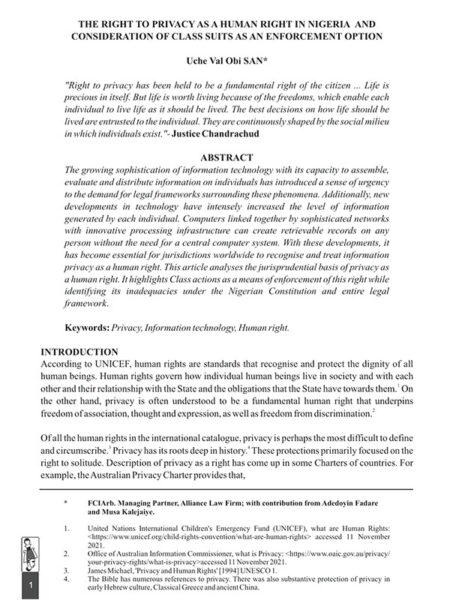


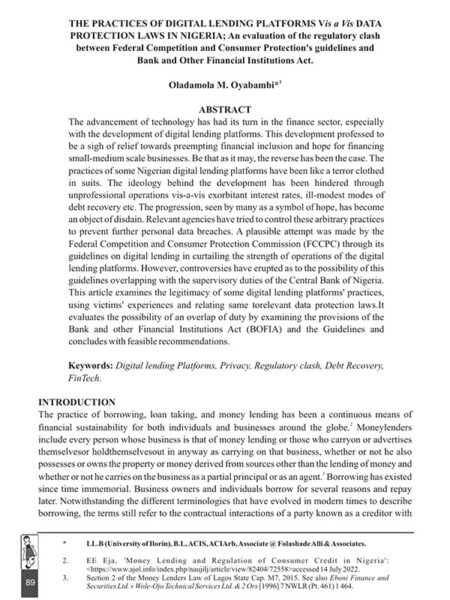
Reviews
There are no reviews yet.